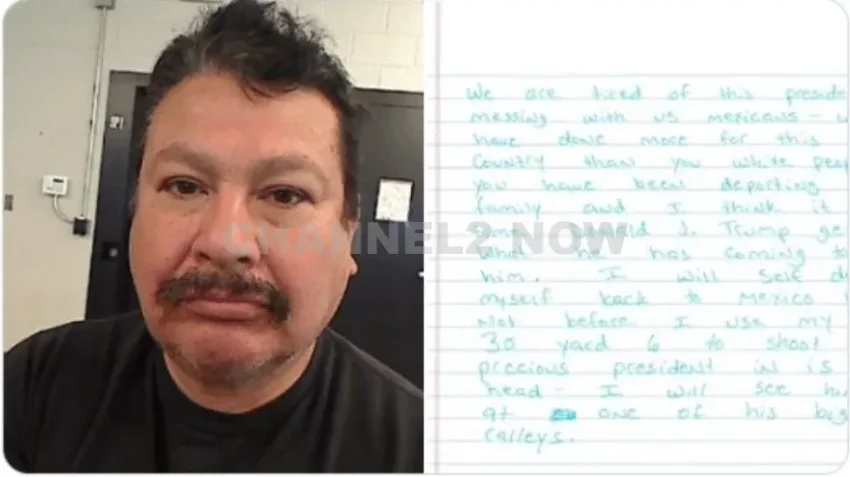In a significant development with potential national security implications, U.S. immigration authorities have arrested a 54-year-old Mexican national, Ramon Morales Reyes, following accusations that he made violent threats against former President Donald J. Trump. According to a statement released on Wednesday by the U.S. Department of Homeland Security (DHS), Morales Reyes is alleged to have expressed his intent to assassinate the former president in a threatening communication directed at a federal immigration officer.
The incident came to light after Morales Reyes reportedly mailed a letter to a U.S. Immigration and Customs Enforcement (ICE) officer in which he threatened to “shoot your precious president in [his] head” at a Trump campaign rally. The statement, deemed credible by authorities, prompted swift action by federal agents due to the seriousness of the threat and the potential risk to public safety.
Homeland Security Responds Swiftly
The Department of Homeland Security underscored the gravity of the situation in its public statement, emphasizing that all threats against former or current presidents are taken with the utmost seriousness, regardless of the source. A multi-agency investigation was launched shortly after the letter was received, with ICE, the U.S. Secret Service, and other federal law enforcement agencies collaborating to locate and apprehend Morales Reyes.
“Threats of political violence, especially those targeting former or current national leaders, represent a clear and present danger to democratic institutions and public safety,” the DHS statement read. “We are committed to working with our law enforcement partners to address and neutralize such threats wherever they arise.”
Arrest and Detention
Morales Reyes was apprehended without incident earlier this week at a residence in a suburban area outside Washington, D.C., where he had reportedly been residing without proper documentation. Authorities have confirmed that he is currently being held in federal custody, facing potential charges related to making threats against a former president, a serious federal offense under 18 U.S. Code § 879. Additional charges related to immigration violations may also be filed.
Federal officials have not released further details about Morales Reyes’ immigration status, history of interactions with law enforcement, or whether he has any known connections to extremist organizations. However, sources familiar with the investigation indicated that he may have had prior contact with immigration authorities, which could have led to the targeting of an ICE officer in his correspondence.
Legal Proceedings Ahead
Legal experts expect that Morales Reyes will undergo a formal hearing in the coming days before being transferred into the custody of the U.S. Marshals Service for federal prosecution. If convicted, he could face substantial prison time, including up to five years in prison for threatening a former president, and additional penalties for any immigration-related offenses.
Former President Trump, who is currently a declared candidate for the 2024 presidential election, has not publicly commented on the threat. His campaign team has also not issued a formal statement but is reportedly coordinating with the Secret Service to enhance security at upcoming public events and rallies.
Broader Context: Political Tensions and Public Safety
This incident arrives amid a politically charged climate in the United States, where threats against public officials—past and present—have become increasingly frequent. The U.S. Secret Service and FBI have documented a rise in politically motivated threats in recent years, citing social media proliferation, heightened polarization, and domestic extremism as contributing factors.
“This case is a reminder of the volatility and threats that can accompany political discourse in our country,” said one former Secret Service official, speaking anonymously. “Our job is to stay ahead of those threats and ensure that no harm comes to our nation’s leaders—past or present.”
Conclusion
As the investigation into Ramon Morales Reyes continues, federal authorities remain vigilant in addressing potential threats to national figures. DHS has reiterated its zero-tolerance policy for violence or threats against public officials and urged members of the public to report any suspicious activity to law enforcement.
The case serves as a sobering reminder of the risks faced by public officials and the critical importance of maintaining robust protections for those in the national spotlight.

